Meet the Team
The Foundation of Sarcoidosis Research (FSR) maintains a strong Scientific Advisory Board (SAB) composed of world renowned key opinion leaders within the fields of sarcoidosis, medical research, therapy development, and medical practice. The SAB helps advance FSR towards its mission dedicated to finding a cure for this disease and to improving care for sarcoidosis patients.
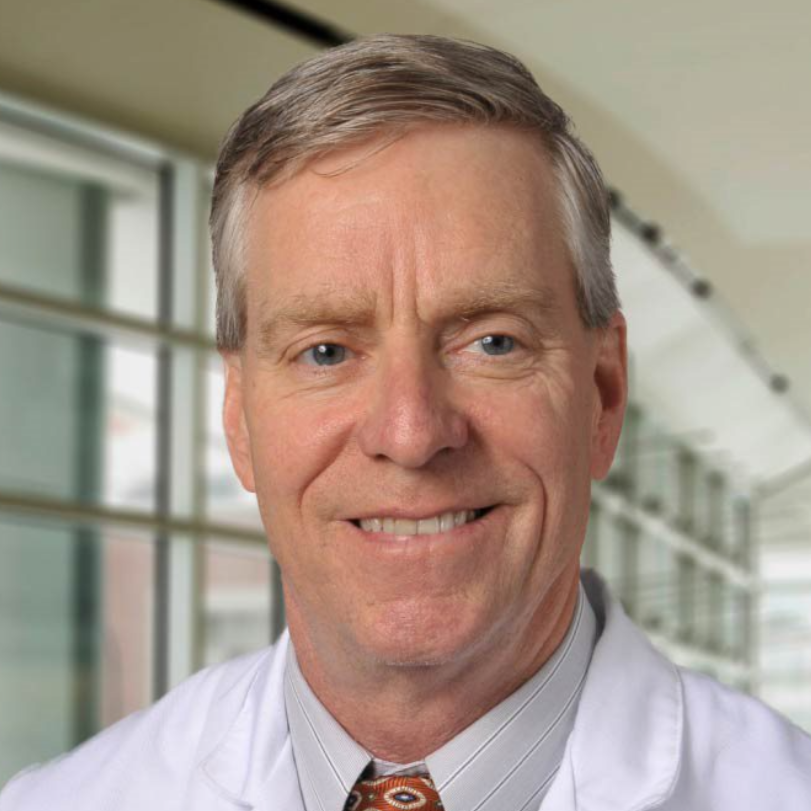
Elliott Crouser, MD
SAB Chair
Ohio State University
Dr. Elliott Crouser is a distinguished pulmonologist and critical care specialist at Ohio State University. He currently serves as a Professor of Medicine with tenure at the Ohio State University College of Medicine. Dr. Crouser received his medical degree from the University of Toledo College of Medicine. He completed his residency in Internal Medicine at Ohio State University Hospital, followed by a fellowship in Pulmonary Disease and Critical Care Medicine. With over 28 years of experience, Dr. Crouser has developed extensive expertise in critical care medicine and pulmonary diseases, with a particular focus on sarcoidosis. Dr. Crouser held several prestigious positions, including:
- President of the Americas Association of Sarcoidosis and Other Granulomatous Disorders (AASOG) from 2018 to 2020
- Chair of the American Thoracic Society Official Clinical Practice Guidelines for Sarcoidosis from 2017 to 2020
- Chair of the Internal Medicine Section (>4000 members) for the Society of Critical Care Medicine from 2019 to 2021
Dr. Crouser has been actively involved in research and has received numerous grants and awards, including Star Research Awards from the Society of Critical Care Medicine in 2017 and 2019. Dr. Crouser practices at the Ohio State University Wexner Medical Center in Columbus, Ohio, where he is highly regarded by his patients for his expertise, thoroughness, and compassionate care.

Nicholas Arger, MD
University of California - San Francisco
As a translational researcher, Dr. Arger has found that working in the sarcoidosis field has allowed him to use his background in pulmonary medicine as well as immunology and clinical research to further our understanding of the pathobiology of this disease. After performing immunology research during medical school and my Internal Medicine residency, Dr. Arger joined the UCSF Sarcoidosis Research Program as a post-doctoral Pulmonary and Critical Care fellow where he participated in multi-center studies investigating the role of specific T cell populations and cytokines in sarcoidosis patients. During his training, he received a Masters in Clinical Research from UCSF. His work has focused on how Th1 and Th17 populations in the blood and lung as well as serum chemokine levels are associated with sarcoidosis outcomes. After joining the UCSF Sarcoidosis Research Program, Dr. Arger trained in the UCSF Interstitial Lung Disease Clinic and have continued to care for sarcoidosis patients. As a member of the Foundation for Sarcoidosis Research Scientific Advisory Board, he helps foster a diverse and rigorous approach to studying and improving outcomes in this disease.
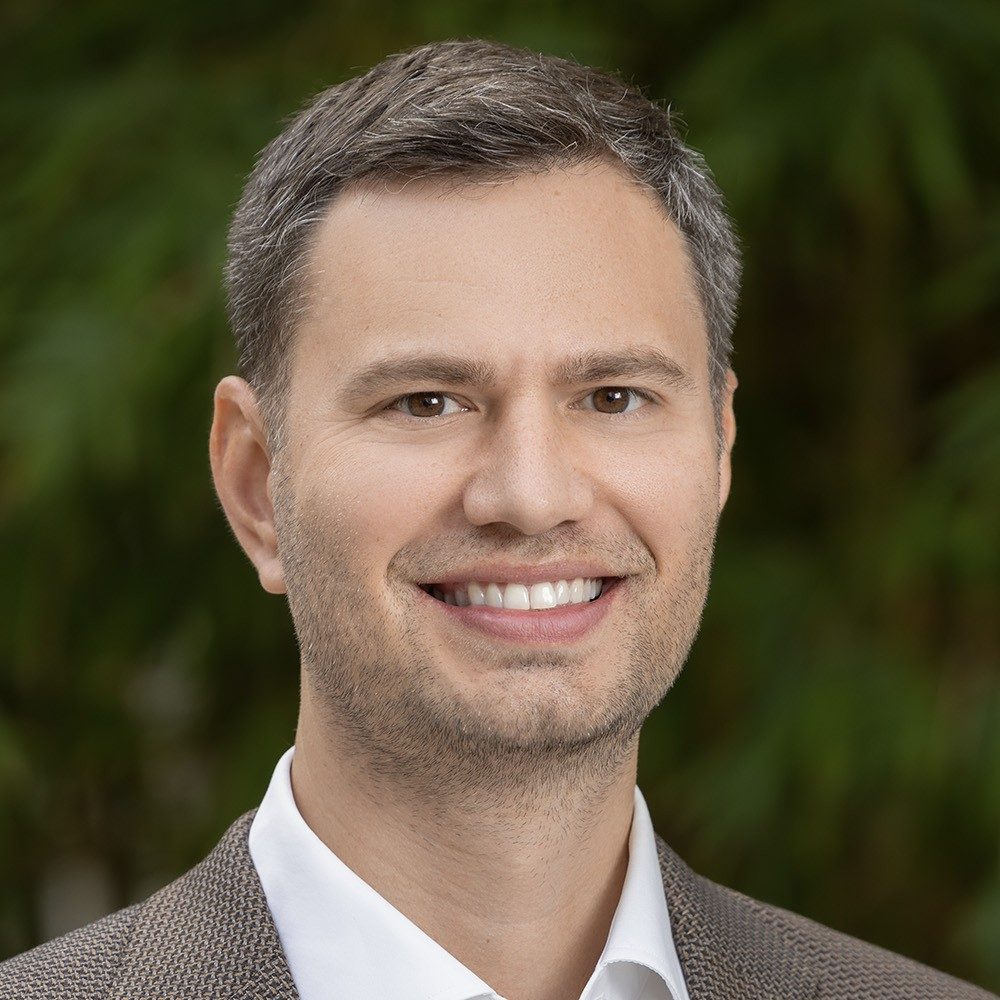
Matthew Baker, MD, MS
Stanford University
Dr. Baker is the Clinical Chief in the Division of Immunology and Rheumatology at Stanford University and the Co-Director of the Stanford Multidisciplinary Sarcoidosis Program. He received his bachelor's degree from Pomona College, his medical degree from Harvard Medical School, and his master's degree in Epidemiology and Clinical Research from Stanford University. He completed his Internal Medicine residency at the Massachusetts General Hospital and his Rheumatology fellowship at Stanford University. Dr. Baker has established a clinical research program that is focused on clinical trials, epidemiological studies, and bench-to-bedside translational research. He has designed and led investigator-initiated, and industry sponsored clinical trials with a focus on sarcoidosis and IgG4-related disease.

Robert Baughman, MD
University of Cincinnati
Dr. Baughman is Professor of Medicine at the University of Cincinnati. After completing undergraduate training at Yale University, he received his medical degree from Case Western Reserve School of Medicine. He joined the Internal Medicine staff at the University of Cincinnati after completing both an Internal Medicine residency and fellowship training in pulmonary diseases at the University of Cincinnati. His major research interests include two major clinic areas: the treatment of sarcoidosis and the diagnosis of pneumonia. Along with his long time collaborator Dr. Elyse Lower, he has developed several novel treatments for sarcoidosis, including methotrexate, thalidomide, leflunomide, and infliximab. Current studies include treatments for sarcoidosis associated fatigue and pulmonary hypertension due to sarcoidosis.
He is on the editorial board of multiple subspecialty journals, and his publications include over 150 original papers and over 70 review articles and/or book chapters. He is on the editorial board of several journals, including American Journal of Respiratory and Critical Care Medicine and Chest. In addition, Dr. Baughman is the recent editor of books on sarcoidosis, interstitial lung disease, and ventilator associated pneumonia.
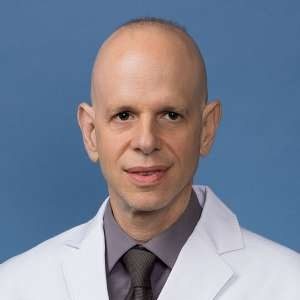
John Belperio, MD
UCLA Medical Center
Dr. Belperio is a distinguished pulmonologist and critical care medicine specialist based in Los Angeles, California. He currently holds the Guitiara Pierpoint Endowed Chair in Interstitial Pulmonary Fibrosis and serves as a Professor of Medicine at the UCLA School of Medicine. Dr. Belperio received his medical degree from the Lewis Katz School of Medicine at Temple University in 1994. He completed his residency in Internal Medicine at the University of Maryland from 1994 to 1997, followed by a fellowship in Pulmonary Disease and Critical Care Medicine at the University of Michigan Health System from 1997 to 2000. With over 29 years of experience in the medical field, Dr. Belperio has developed extensive expertise in Interstitial Lung Disease and Obstructive Lung Disease. Throughout his career, Dr. Belperio has been actively involved in research and clinical trials, particularly in areas related to lung transplantation, pulmonary arterial hypertension, idiopathic pulmonary fibrosis, and sarcoidosis. His research contributions have been significant, with numerous publications in reputable medical journals.
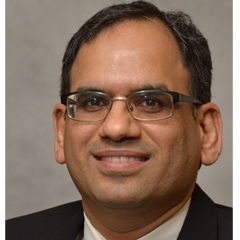
Maneesh Bhargava, MBBS, PhD
University of Minnesota
Dr. Maneesh Bhargava, MBBS, PhD, is a Professor of Medicine and Assistant Director for Translational Research, Pulmonary and Critical Care Medicine at Ohio State University. He has over 21 years of experience in the medical field and specializes in critical care medicine. Dr. Bhargava received his MBBS from Chhatrapati Shahu Ji Maharaj University and completed his MD in Medicine from GSVM Medical College. He furthered his medical training with an internship in Internal Medicine at Robert Packer Hospital, followed by a residency in Internal Medicine at the University of Minnesota. His postgraduate training includes a fellowship in Critical Care Medicine at Hennepin County Medical Center, and a fellowship in Pulmonary and Critical Care Medicine at the University of Minnesota Medical School. Dr. Bhargava also holds a PhD in Biomedical Informatics and Computational Biology from the University of Minnesota-Twin Cities. His clinical expertise encompasses pulmonary sarcoidosis, interstitial lung diseases, medical critical care, and acute respiratory distress syndrome.

David Birnie, MB, MRCP, MD
University of Ottawa
Dr. David Birnie was appointed staff cardiac electrophysiologist (EP) at the University of Ottawa Heart Institute (UOHI) in May 2002, and was appointed Vered Chair, and Head, Division of Cardiology in March 2022. He was educated in Scotland and received his medical degree (MB ChB) from Glasgow University in 1990. He spent three years as a cardiology research fellow at Glasgow University from 1993 studying the immunology of atherosclerosis and was awarded his PhD equivalent (MD) in 1996. Between 1996 and 2001 he completed cardiology training in Glasgow and spent a year in 1999-2000 as an EP fellow at UOHI.
His clinical focus is on all aspects of cardiac EP including radiofrequency ablation of simple and complex arrhythmias and implantation and follow-up of device therapy. His major ongoing research interests are cardiac sarcoidosis, selection and optimization of CRT for heart failure patients, investigating optimal strategies for complication reduction around EP procedures. To date he has been involved in over 500 peer-reviewed publications. He has had continuous peer reviewed funding since 2004 and holds current grants from CIHR and Heart and Stroke Foundation of Canada. He is founding member of the Canadian Heart Rhythm Society and is current chair of the research committee. In 2020 he was elected to the executive committee of the World Association of Sarcoidosis (WASOG). He has managed to combine work with his major passion/hobby; serving as cardiologist for the medical advisory committee of the Canadian Soccer Association.
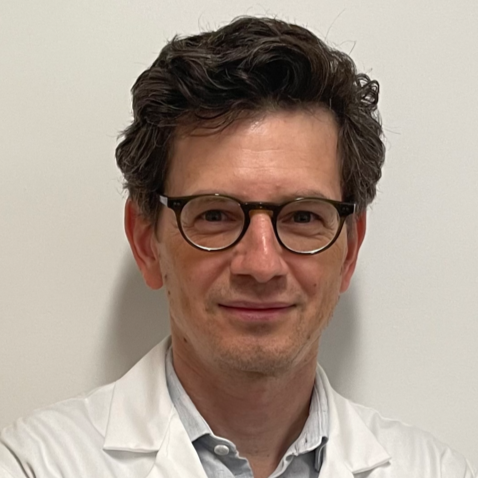
Avrom Caplan, MD
New York University
Dr. Avrom Caplan trained in internal medicine and dermatology at the University of Pennsylvania after graduating from University of Chicago - Pritzker School of Medicine. He is an Assistant Professor of Dermatology at NYU in the Ronald O. Perelman Department of Dermatology and at NYC Health + Hospitals/Bellevue. He is Co-Director of the Sarcoid Program at NYU, and clinical lead for sarcoidosis in the dermatology clinic at Bellevue, both of which are recognized by WASOG. He also co-directs the yearly Sarcoid CME symposium at NYU. His research efforts focus on the clinical care of patients with cutaneous sarcoidosis.
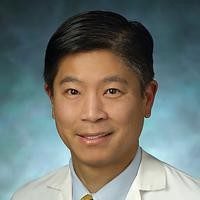
Edward Chen, MD
Johns Hopkins University
Dr. Chen practices Pulmonary and Critical Care Medicine. His primary area of interest is sarcoidosis, and he has extensive experience in the diagnosis and treatment of sarcoidosis in all of its forms, and the management of consequences of this systemic disease.
The Sarcoidosis Clinic often serves to coordinate management of patients with multi-organ involvement with sarcoidosis, and to this end Dr. Chen actively maintains clinical and research collaborations with Cardiology, Cardiovascular Nuclear Medicine, Neurology, and Ophthalmology.
Additionally, Dr. Chen participates as a Physician Champion in the Johns Hopkins Health System Epic project to improve the safety and quality of care of critically ill patients through optimization of the electronic medical record. His work involves developing systems-based approaches to complex management issues, including sepsis and severe alcohol withdrawal.
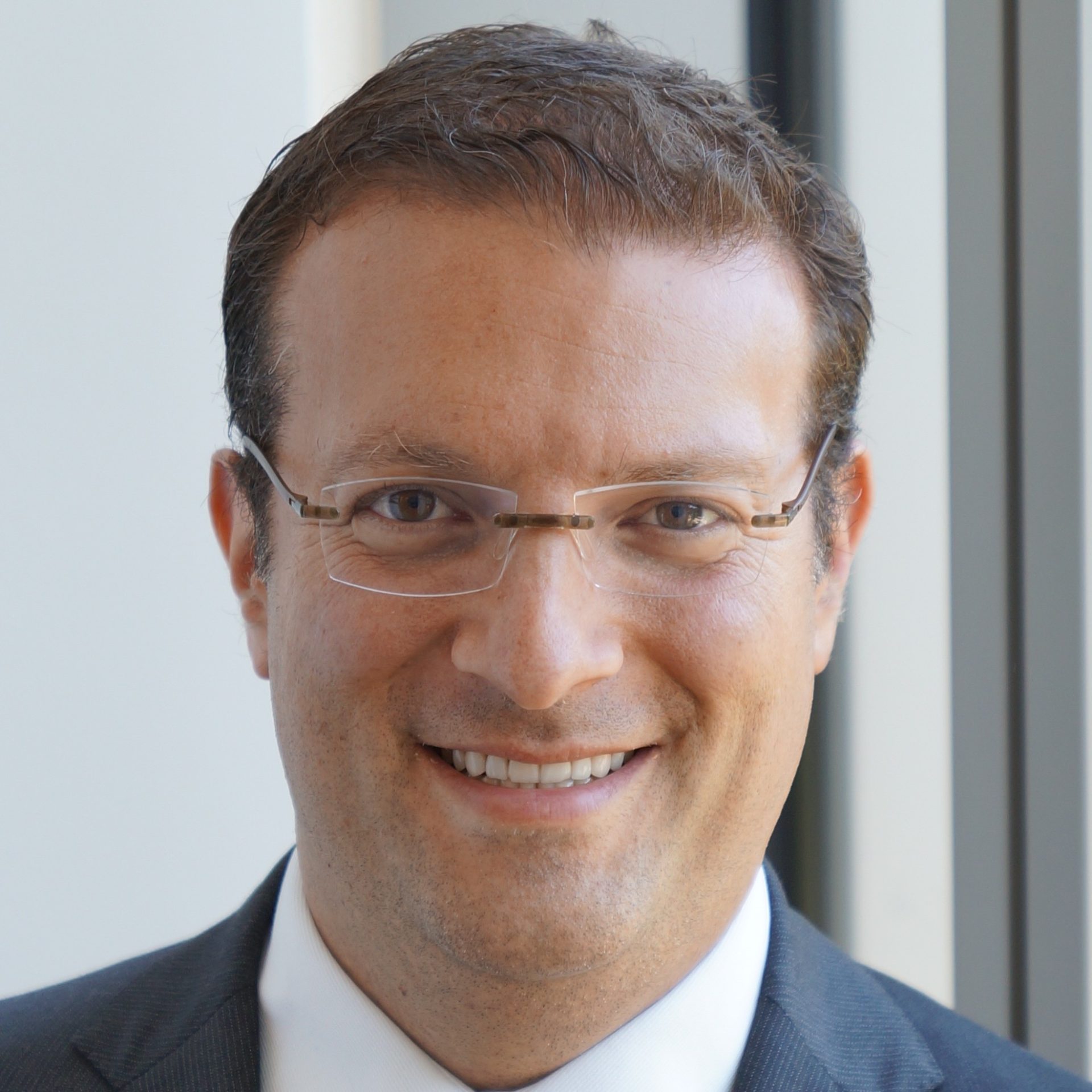
Jeffrey Gelfand, MD
University of California - San Francisco
Dr. Gelfand is a Professor of Neurology at UCSF. He specializes in caring for people with neuroinflammatory disease, including clinical expertise in caring for people with neurosarcoidosis. Dr. Gelfand serves as Medical Director of the UCSF MS and Neuroinflammation Clinic. He is a Fellow of the American Academy of Neurology (FAAN), and in 2023 was elected Chair of the Autoimmune Neurology section of the American Academy of Neurology. Dr. Gelfand received an A.B. in history from Princeton University, graduating summa cum laude and Phi Beta Kappa. He received his M.D. from Harvard Medical School. He completed an internship in internal medicine, residency in neurology, and subspecialty fellowship training in MS/neuroimmunology, all at UCSF. Dr. Gelfand went on to earn a Masters in Advanced Study in clinical research at UCSF. He is board-certified in Neurology.

Mridu Gulati, MD, MPH
Yale University
Dr. Gulati is an Associate Professor in the Yale School of Medicine with a dual appointment in the Section of Pulmonary, Critical Care and Sleep Medicine as well as the Occupational and Environmental Medicine Program. She is the Director of the Sarcoidosis Clinic, a recognized WASOG (World Association of Sarcoidosis and Other Granulomatosis Disorders) Center of Excellence and Associate Director of the Yale-Interstitial Lung Disease Program, a recognized member of the Pulmonary Fibrosis Foundation Care Center Network as well as the Associate Director of the Winchester Center of Lung Disease. She has served as a Yale co-investigator and principal investigator on several research studies in sarcoidosis and interstitial lung diseases. She has a number of publications on these topics and has been an invited speaker in both regional and national forums. She has served and is serving on a number of regional and national committees for American Thoracic Society Environmental Occupational and Population Health Program Committee, the American Thoracic Society Project Committee for the Diagnosis of Hypersensitivity Pneumonitis Guidelines, the World Trade Center Health Program Scientific and Technical Advisory Committee. She has also served as Co-Chair for the Connecticut State Rare Disease Task Force.
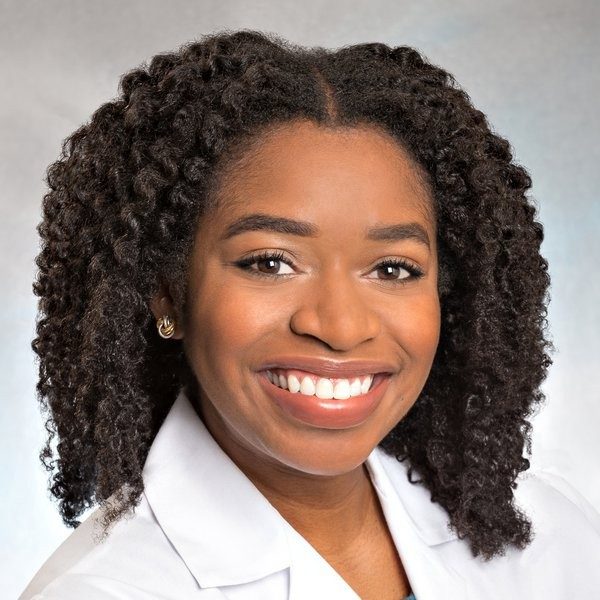
Sotonye Imadojemu, MD, MPH
Brigham and Women’s Hospital
Dr. Sotonye Imadojemu, an expert in the fields of cutaneous sarcoidosis and the intersection of race and racism in dermatology, has made important contributions to both medical research and clinical practice. She completed her dual training in internal medicine and dermatology at the University of Pennsylvania in 2017, establishing a solid foundation for her multifaceted career.
She graduated with honors from Harvard College. Armed with a keen interest in bioethics, Dr. Imadojemu pursued and earned a Masters in Bioethics from the prestigious Penn Center for Bioethics while in medical school at the University of Pennsylvania, further enhancing her ability to navigate complex moral considerations in the medical field. She completed her MPH with a focus on epidemiological research and the impact of health disparities, equipping her with the skills to bridge clinical practice and population health, particularly in addressing the social determinants of skin disease and advancing healthcare equity.
Currently serving as the Director of the Cutaneous Sarcoidosis and Granulomatous Diseases Clinic at Brigham and Women’s Hospital, Dr. Imadojemu plays a pivotal role in providing outstanding patient care and advancing the understanding of complex skin disease. Simultaneously, she holds the position of Associate Director of the Dermatology Consult Service at Brigham and Women’s Hospital, bringing her expertise in complex medical dermatology to bear in the hospital setting.
As a dedicated educator, Dr. Imadojemu serves as the Associate Program Director at the Harvard Combined Dermatology Residency Program, where she imparts her extensive knowledge and experience to the next generation of dermatologists. Her passion for education extends beyond the classroom as she regularly delivers lectures on the intersection of race and the impact of racism on biology in health, with a specific focus on inflammatory skin diseases.

Ennis James, MD
Medical University of South Carolina
Dr. Ennis James became interested in sarcoidosis as a pulmonary and critical care fellow at Virginia Commonwealth University and joined the pulmonary faculty at MUSC in 2015. Dr. James is a member of FSR Scientific Advisory Board and FSR’s Clinical Studies Network and serves as the Program Director for the Susan Pearlstine Sarcoidosis Center of Excellence. He strongly believes in its vision to improve the lives of sarcoidosis patients by providing coordinated, patient-focused multidisciplinary care and cutting-edge sarcoidosis research. He is happy to see sarcoidosis patients with any type of organ involvement.
For additional information about the sarcoidosis program, please visit the website: www.musc.edu/sarcoidosis.
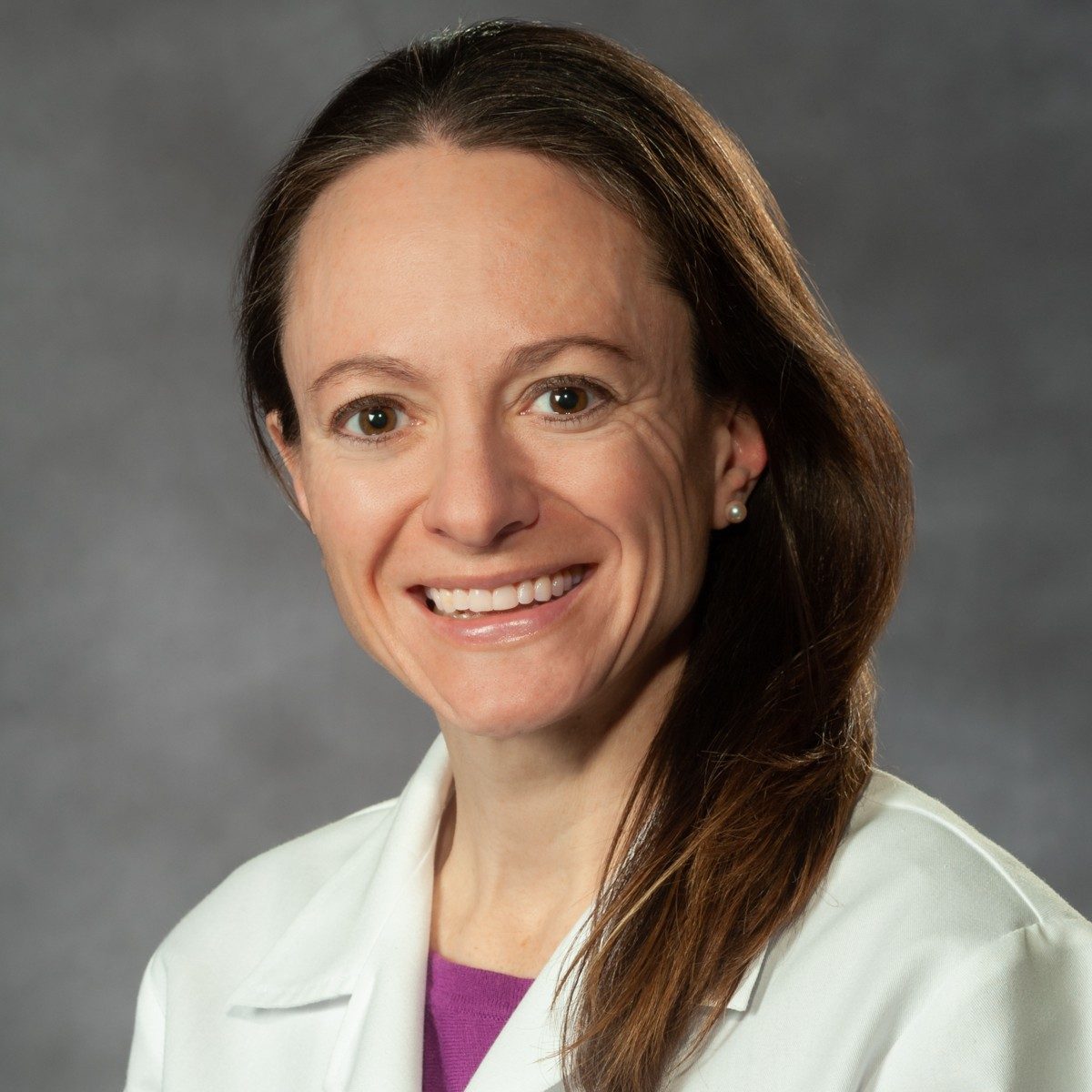
Jordana Kron, MD
Virginia Commonwealth University
Dr. Kron graduated magna cum laude from Princeton University with a major in Chemistry and went to medical school at Johns Hopkins Hospital in Baltimore, where she also completed Internal Medicine Residency. She completed fellowships in Cardiology and Cardiac Electrophysiology at the University of Florida. She joined faculty as a clinical cardiac electrophysiologist at Virginia Commonwealth University in 2008, where she was Program Director for the electrophysiology fellowship program from 2013-2017 and an Associate Professor since 2015, and Professor since 2021. She is a founding member of the VCU Sarcoidosis Clinic.
Her primary research interest is cardiac sarcoidosis. She served on the writing committee for the HRS Expert Consensus Statement on the Management of Arrhythmias Associated with Cardiac Sarcoidosis and was section leader for Management of Atrial Arrhythmias and Conduction System Disease in Patients with Cardiac Sarcoidosis. She is a founding member of the Cardiac Sarcoidosis Consortium, an international collaborative research group committed to furthering the understanding of cardiac sarcoidosis. In 2018, she was selected as VCU Center for Clinical and Translational Research Translational Scholar to support her research on prevention of arrhythmias and heart failure therapy in cardiac sarcoidosis. She has received funding from the VCU Johnson Center, the VCU CCTR, and the Pauley Heart Center to support her translational research. She received an AHA Collaborative Sciences Award to investigate novel therapy with Interleukin-1 blockade and new imaging techniques for cardiac sarcoidosis and in 2020, an NIH NCATS R21 grant to support a multisite randomized controlled trial evaluating the safety and efficacy of Interleukin-1 to treat cardiac sarcoidosis.

Craig Lipset
Clinical Innovation Partners
Craig Lipset is a recognized leader at the forefront of innovation in clinical research and medicine development. He is an advisor to technology and biopharmaceutical companies, leading universities, and the venture community, bringing vision and driving action at the intersection of research, digital solutions, and patient engagement. Craig was the Head of Clinical Innovation and Venture Partner at Pfizer, on the founding Operations Committee for TransCelerate Biopharma, and on the founding management teams for two successful startup ventures (Perceptive Informatics and Adnexus Therapeutics). During that time, Craig designed and launched multiple industry firsts — from the first fully remote/virtual clinical trial for a new medicine to the first returning of results and data to research participants. He currently serves on the Board of Directors for the Foundation for Sarcoidosis Research, the MedStar Health Research Institute, and the People-Centered Research Foundation (the central office for PCORnet), as well as on the Editorial Board for Therapeutic Innovation & Regulatory Science.
Craig has been listed among the PharmaVOICE most inspiring people in the life sciences, Pharmaceutical Executive’s Emerging Leaders, CenterWatch Top 20 Innovators in Clinical Trials, and the AlleyWatch Who’s Who in eHealth. He studied Music at Brandeis University and earned a Master of Public Health from Columbia. When not working to accelerate research, Craig can be found at hockey rinks, dance recitals, or dog walks.
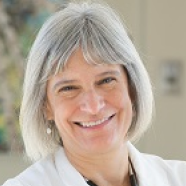
Lisa Maier, MD, MSPH, FCCP
National Jewish Health
Lisa A. Maier, MD MSPH is the Chief of the Division of Environmental and Occupational Health Sciences, and Director of the Center for Environment, Climate and Health at National Jewish Health (NJH). She is also a Professor of Medicine at NJH, and School of Medicine and Colorado School of Public Health at University of Colorado Anschutz Medical Campus. As a physician scientist, Dr. Maier’s major research interests focus on defining genetic, genomic/epigenetic and exposure risk factors in occupational, environmental and idiopathic lung diseases; the aim of these studies is to help define biomarkers and therapeutic and preventive interventions. These investigations primarily center on two granulomatous diseases, sarcoidosis, and CBD, the focus of Dr. Maier’s clinical practice. In addition to the above activities, Dr. Maier enjoys teaching house staff and students, in clinic and research, and educating patients, physicians, health care providers, and workers.
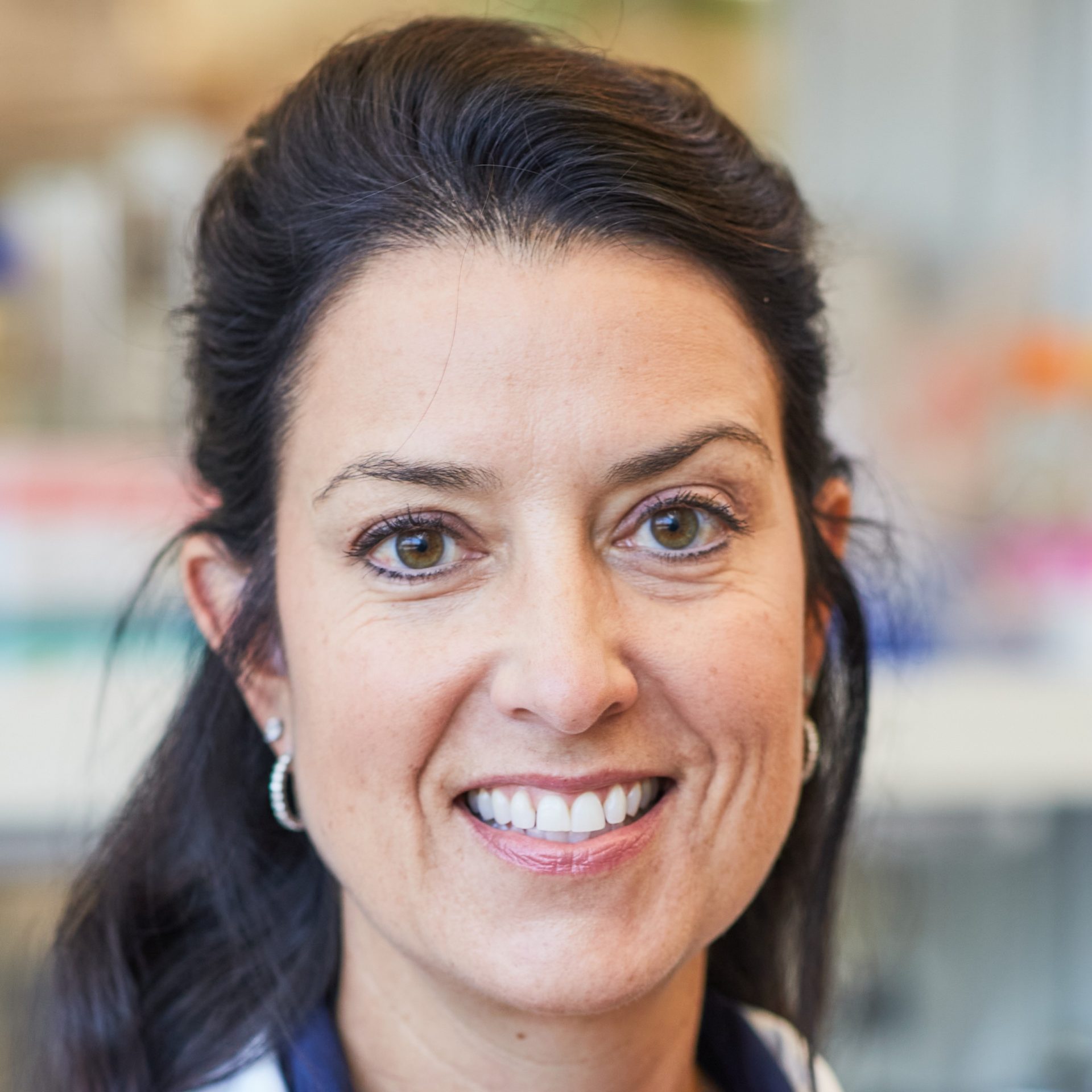
Courtney Montgomery, PhD
Oklahoma Medical Research Foundation
Dr. Montgomery leads an NIH-funded laboratory within the Genes and Human Disease Research Program at the Oklahoma Medical Research Foundation (OMRF). She has been focused on the immunological and genetic underpinnings of sarcoidosis since 2008. Her group led the first and only GWAS in sarcoidosis in a large multi-ancestry US cohort and has since published many studies aimed at the clinical and molecular characterization of sarcoidosis patients in the US, particularly those of African ancestry. She has been and continues to be a part of multiple national consortia including NHLBI Life after Linkage, NHLBI Trans-omics in Precision Medicine, and the NIDDK Immune Mediated Disease in African Americans. She serves as Director of the OMRF Sarcoidosis Research Unit (SRU) as well as the OMRF Center for Biomedical Data Sciences.

Adam Morgenthau, MD
Icahn School of Medicine at Mount Sinai
During his Fellowship at Johns Hopkins, Dr. Morgenthau developed clinical and research interests in sarcoidosis. Dr. Morgenthau is currently the Director of the Sarcoidosis Clinic and the Alvin S. Teirstein Sarcoidosis Support Group at the Mount Sinai Hospital. Dr. Morgenthau has published extensively on sarcoidosis. He is currently a co-investigator on a clinical trial examining new treatments in sarcoidosis.

Natalia Rivera, PhD, MS
Karolinska Institute
Natalia Rivera, PhD, is a geneticist specializing in the genetics and genomics of sarcoidosis, with extensive experience in studying complex human diseases. She completed her undergraduate training in electrical and biomedical engineering at Syracuse University in 1999, followed by a Master of Science from Rutgers University in 2004. Awarded a National Science Foundation (NSF) Fellowship in 2004, she pursued further graduate studies in biomedical engineering at Virginia Tech.
In 2007, Dr. Rivera relocated to the National Research Council of Italy in Rome to delve into cardiovascular genetics research. Subsequently, she pursued doctoral studies in molecular medicine at the University of Milan, focusing on the genetics of cardiovascular diseases, defending her thesis on "Genetics of Left Ventricular Hypertrophy" in 2012. Additionally, she earned a Master of Science in Health Sciences with a specialization in Genetic Epidemiology from Erasmus University Rotterdam, The Netherlands, in 2011. Her postdoctoral fellowship at Karolinska Institutet in 2013 focused on the genetics of irritable bowel syndrome and gene regulation. Joining Professor Johan Grunewald's lab in 2014, she collaborated with Dr. Leonid Padyukov on sarcoidosis genetics. Promoted to Assistant Professor in 2018, Dr. Rivera advanced her research on sarcoidosis genetics across populations and biomarker identification. She founded the Multi-Ethnic Sarcoidosis Genomics Consortium (MESARGEN) and chaired the WASOG 2023 Stockholm conference.
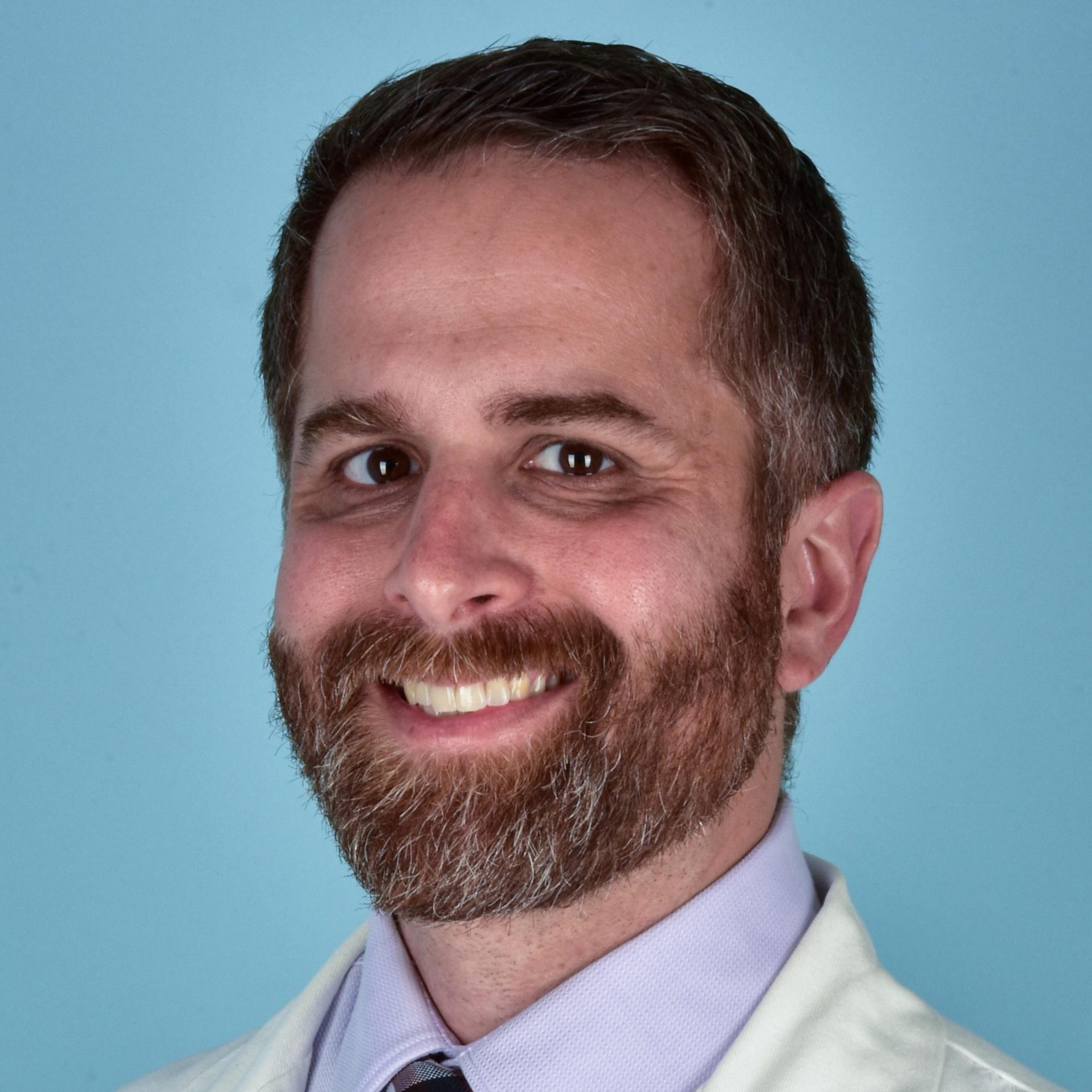
Misha Rosenbach, MD
University of Pennsylvania
Dr. Misha Rosenbach is the Paul R. Gross Professor of Dermatology & Rheumatology at the University of Pennsylvania. He is the co-director of the inpatient consult service, and serves a variety of educational roles including Vice Chair of Education and Program Director of the dermatology residency. Dr. Rosenbach’s clinical practice is focused on complex medical dermatology, where he runs a sarcoidosis clinic, with his research focused primarily on granulomatous and neutrophilic dermatoses. He has published more than 270 peer reviewed articles, multiple chapters, and 7 textbooks, including serving as one of the editors of Andrew’s Diseases of the Skin. The Penn Sarcoidosis clinic has been recognized by both WASOG and FSR as a Center of Excellence, and has a multidisciplinary program including clinical trials and ongoing basic and translational research.

Milton Rossman, MD
University of Pennsylvania
Dr. Milton D. Rossman is an Emeritus Professor CE of Medicine at the University of Pennsylvania. He specializes in pulmonary medicine, with a particular focus on conditions such as pulmonary fibrosis and sarcoidosis. Dr. Rossman has been widely recognized for his expertise and contributions to the field:
- He has been named in America's Top Doctors multiple times between 2007 and 2019.
- Philadelphia magazine has consistently featured him in their annual Top Docs issues from 2004 to 2021.
- As a clinical investigator, Dr. Rossman's primary research interests involve industry-sponsored grants testing the efficacy of drugs for pulmonary fibrosis and sarcoidosis. He also serves on data safety monitoring boards for such studies.
Currently, Dr. Rossman practices at the Perelman Center for Advanced Medicine, West Pavilion, in Philadelphia. Throughout his career, Dr. Rossman has demonstrated a commitment to advancing the understanding and treatment of complex pulmonary diseases, particularly sarcoidosis and pulmonary fibrosis, through both clinical practice and research.
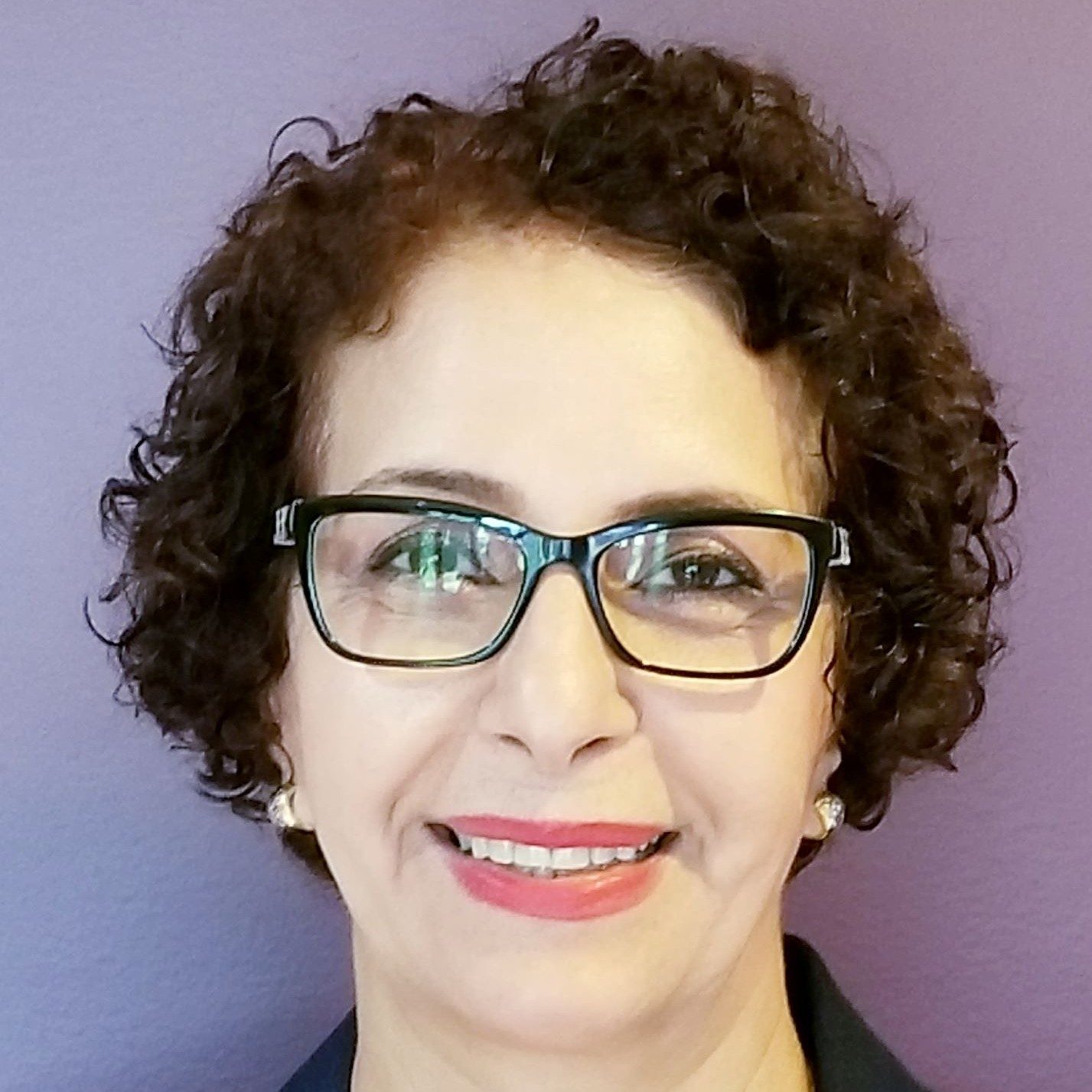
Lobelia Samavati, MD
Wayne State University
Dr. Lobelia Samavati is a Board-certified in Pulmonary Critical Care Medicine and tenured Professor at Wayne State University. She graduated from University of Cologne, Germany and trained in rheumatology before coming to US to complete her internal medicine residency and subsequently her pulmonary critical care medicine at the university of Iowa. She joined Wayne State University, Detroit, Michigan and established in 2004 a Center for Sarcoidosis/Interstitial Lung Diseases. One of the top centers for Sarcoidosis & Interstitial Lung Diseases, dedicated to building a comprehensive program for patient care and research and training. She is passionate about advancing knowledge in interstitial lung diseases and their connection to connective tissue disorders. She is the lead investigator in several NIH-funded research projects in sarcoidosis, pioneering research in sarcoidosis and interstitial lung diseases and proud to impact patient care and further the science behind lung health. As a former FSR founded researcher, she knows the importance and impact of funding in the maintenance of research and recruitment of young generation to sarcoidosis field.
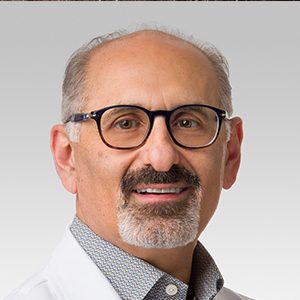
Peter Sporn, MD
Northwestern University
Dr. Peter H. Sporn is a distinguished physician and researcher specializing in pulmonary medicine at Northwestern University. He received his MD from Wayne State University School of Medicine, and completed his residency at Bronx Municipal Hospital Center
Dr. Sporn's research and clinical interests focus on asthma, COPD, interstitial lung disease, and sarcoidosis. He currently serves as a researcher at Northwestern University. Dr. Sporn’s research contributions continue to advance our understanding of various respiratory diseases and their potential treatments.
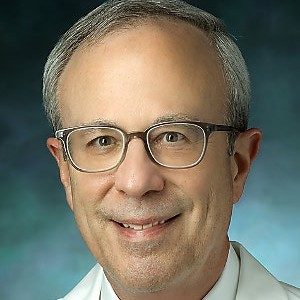
Barney Stern, MD
University of Maryland
Barney J. Stern, MD is a graduate of the University of Rochester School of Medicine and Dentistry. He trained in internal medicine (Boston City Hospital) and neurology (Strong Memorial Hospital). He is certified in internal medicine, neurology, and vascular neurology. Dr. Stern is a Professor in the Department of Neurology of Johns Hopkins University.
Dr. Stern has a longstanding interest in neurosarcoidosis, has collaborated extensively with national and international sarcoidosis groups, and participated in clinical research efforts to better understand this neurological disorder. He has published and lectured extensively on the topic and has a national (international) referral practice. Dr. Stern is a co-investigator on Dr. Carlos Pardo’s NIH/NINDS research study investigating the pathophysiology of CNS sarcoidosis. Dr. Stern has been a member of the Scientific Advisory Board of the Foundation for Sarcoidosis Research since 2014.
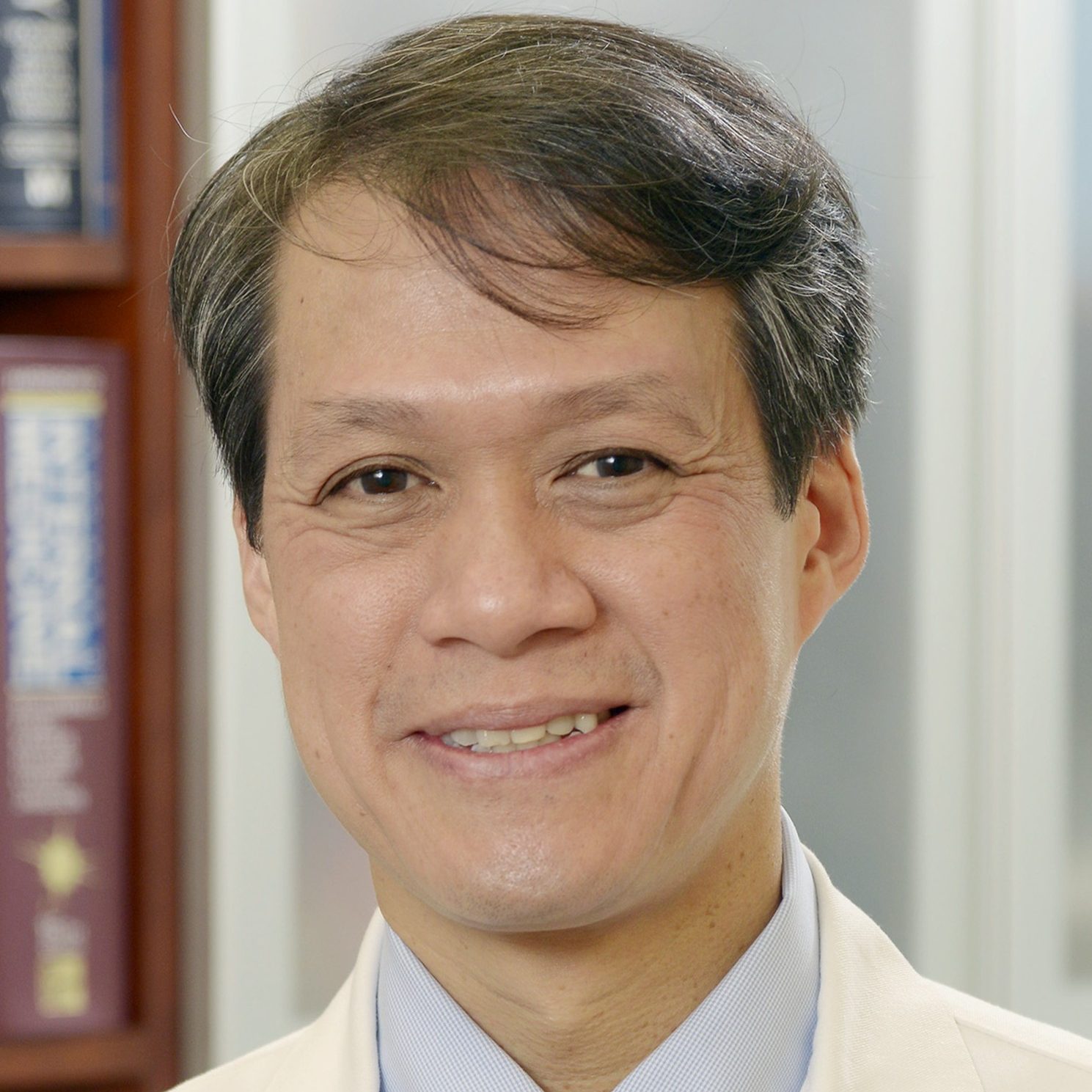
Arthur Yee, MD, PhD
Cornell University and the Hospital for Special Surgery
Dr. Yee serves as an Assistant Professor of Medicine at Weill Cornell Medicine, an Attending Rheumatologist at the Hospital for Special Surgery and New York Presbyterian Hospital, Director of the HSS Sarcoidosis Collaborative, a Founding Board Member of the HSS Lupus Asian Network, and a Board Member on the Scientific Advisory Board of the Foundation for Sarcoidosis Research.
He has pioneered advancements in sarcoidosis treatment, including the introduction of TNF inhibitors, now recognized in international guidelines. His current research explores safely discontinuing these treatments after remission and evaluating JAK inhibitors as emerging therapies. Committed to redefining sarcoidosis as a systemic disease, he aims to integrate rheumatology into its management, fostering an interdisciplinary approach to improve care. His hope is to bring rheumatology to sarcoidosis and sarcoidosis to rheumatology, in the effort to create a truly interdisciplinary approach.
